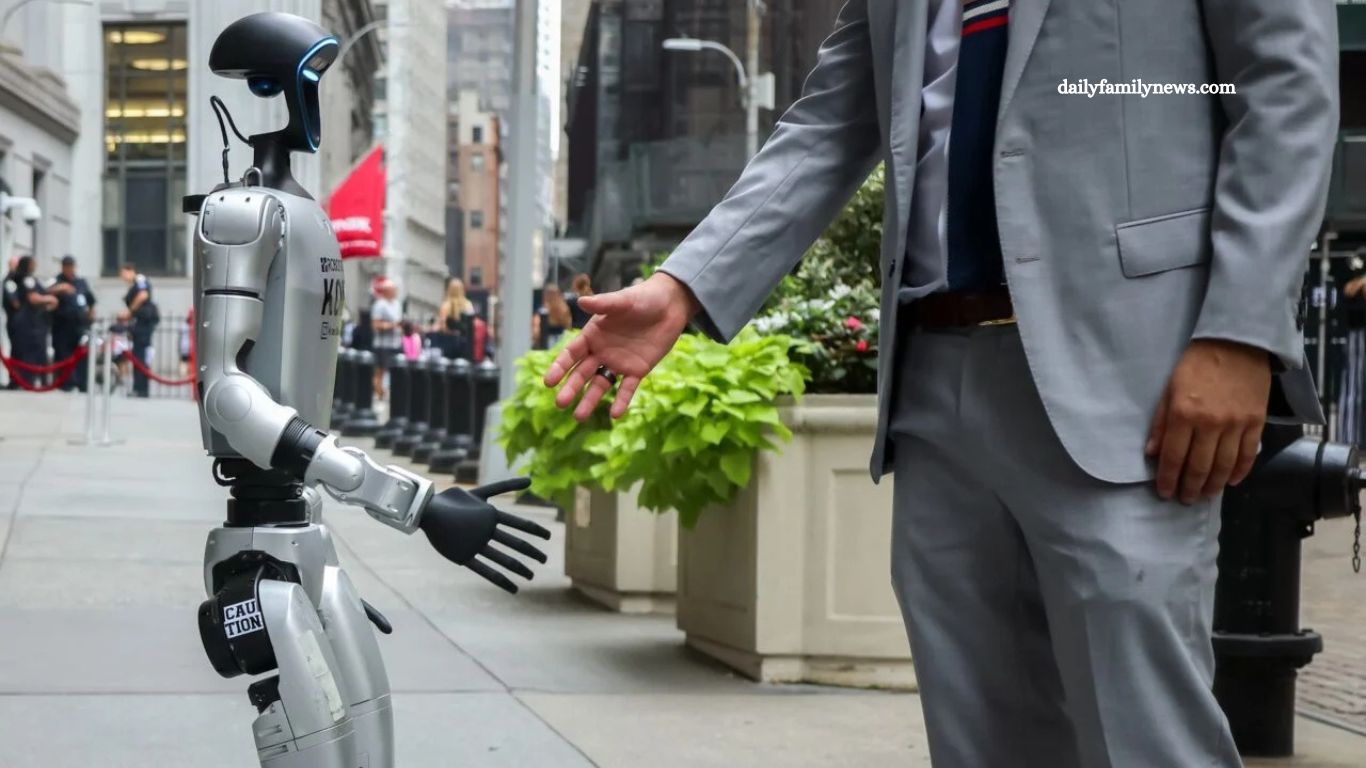As technology continues to evolve, so does the language we use to describe it. In 2025, a new term has taken root in online culture: “clanker” a satirical slur for robots that’s rapidly gaining traction, especially on TikTok. While the word has fictional roots dating back to early science fiction and the Star Wars universe, it’s now being used to comment on our growing unease with automation and artificial intelligence.
Through parody and humor, TikTok creators are imagining a future where robots are integrated into human society and even subjected to discrimination. These viral videos are more than just jokes; they reflect a deeper cultural conversation about the future of technology, labor, and what it means to be human in an increasingly automated world.
Read More: Master the GMAT: Smarter Strategies for Driven Students
What Is a “Clanker”?
“Clanker” is a derogatory term for robots one that traces its origins back over a century. First coined in 1920 for the Czech play R.U.R. (Rossum’s Universal Robots), the term originally represented anxieties about mechanized labor and artificial life. In today’s digital context, it has reemerged as a satirical slur, reflecting a mix of humor and discomfort toward the growing presence of robots in society.
While humanoid robots remain rare in day-to-day life, TikTok users have embraced “clanker” as a way to imagine and critique a future where robots are fully integrated into the workforce and possibly subject to discrimination. The videos often parody human history, mimicking the language and attitudes once directed at marginalized human communities.
The Star Wars Connection
As reported by io9, “clanker” also has a sci-fi lineage. The term appeared in the 2005 video game Star Wars: Republic Commando and was later popularized by The Clone Wars animated series starting in 2008. In that universe, “clanker” is used by clone troopers to refer to battle droids highlighting its use as a dehumanizing insult even within fictional warfare.
This cultural borrowing has fueled a new wave of social commentary online, where creators playfully, and sometimes uncomfortably, merge sci-fi tropes with current technological trends.
From Supermarket Bots to Dystopian Futures
On TikTok, the use of “clanker” ranges from harmless jabs at cleaning robots in grocery stores to elaborate satire that imagines a future filled with oppressed machines. Many of these videos mimic historical scenarios from the 20th century civil rights era only this time, robots are the marginalized group.
It’s a clear sign that content creators are using humor to grapple with very real questions about automation, job security, human identity, and technological ethics.
Elon Musk, Optimism, and the Robot Boom
Part of what’s fueling this new wave of discourse is the promise or threat of a robot-filled future. Elon Musk has repeatedly predicted that billions of humanoid robots will be sold in the near future. While critics argue that many of Musk’s forecasts are overly ambitious, the idea of robots becoming a normal part of life is no longer confined to science fiction.
So far, most of what Musk has shown off are teleoperated robots closer to high-tech stage magic than autonomous agents. Still, they serve as a symbol of what may soon be possible.
The Bigger Picture: Fear, Humor, and the Future
Tech anxiety isn’t new. From the printing press to the smartphone, each technological leap brings both excitement and fear. What’s different now is how that fear plays out in viral memes, TikTok skits, and satirical language.
The use of “clanker” is part of a broader trend in digital culture where humor becomes a vehicle for processing societal change. For some, though, the term veers too close to coded racism highlighting the risk of trivializing historical struggles through parody.
Whether you find the term clever, problematic, or somewhere in between, it’s hard to ignore: “clanker” is everywhere online right now and it may be telling us more about ourselves than about the robots we’re building.
Frequently Asked Questions
What does “clanker” mean?
“Clanker” is a slang term used to mock or insult robots, often in a satirical or humorous context.
Where did the term originate?
It originally appeared in a 1920 Czech play and was later popularized in Star Wars: The Clone Wars as a slur against battle droids.
Why is it trending on TikTok?
Creators are using the term to parody future scenarios where robots are part of society and even face discrimination.
Is “clanker” offensive?
It’s fictional and satirical, but some criticize it for echoing real-world racial slurs in ways that can be uncomfortable or insensitive.
Are humanoid robots common now?
Not yet but growing interest and investment suggest they may become more common in the near future.
Conclusion
The rise of the term “clanker” on TikTok highlights how digital culture processes emerging technologies through satire, humor, and sometimes uncomfortable reflection. While humanoid robots remain rare, the way we talk about them especially using fictional slurs reveals deeper anxieties about the role of machines in our future. Whether viewed as clever social commentary or problematic parody, this trend offers a glimpse into how society is preparing itself, psychologically and culturally, for the age of artificial intelligence.
